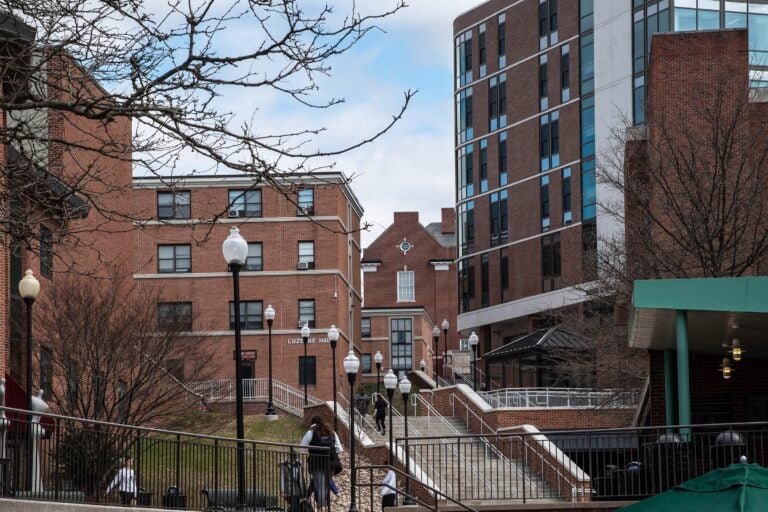Students of color offer solutions to make Pa. public universities more equitable
More than a dozen students offered recommendations to make their colleges more equitable. Many said they’ve suggested these in the past but have seen little action.

(Jose F. Moreno/Philadelphia Inquirer)
This story originally appeared on Spotlight PA.
___
Spotlight PA is an independent, non-partisan newsroom powered by The Philadelphia Inquirer in partnership with PennLive/The Patriot-News and other news organizations across Pennsylvania. Sign up for our free weekly newsletter.
After years of enduring campus racism and universities’ formulaic responses, students across Pennsylvania’s public higher-education system, known as PASSHE, are demanding structural changes.
More than a dozen students offered recommendations to make their colleges more equitable. Many said they’ve suggested these in the past but have seen little action. Their recommendations include:
- Regularly analyzing bias complaints to spot repeat offenders. Many universities have mechanisms for individuals to report incidents of discrimination, but students fear the complaints are viewed in isolation.
- Supporting more student of color organizations. Rather than celebrating Black History Month once a year, students want universities to better fund and promote organizations like Black student unions and Latinx-focused groups on a regular basis.
- Hiring more faculty and staff of color, including mental health counselors. Across the PASSHE system, only 4% of faculty are Black, 3% Hispanic, and 6% Asian. Many students said they’ve only had one professor of color over their college career and find it difficult to connect with white counselors who have not experienced racism. More faculty and staff of color would allow students to connect with mentors who can relate to the challenges they face on campus and help overcome them.
- Teaching anti-racism on campus and in the community. Although several universities have voluntary trainings on implicit bias, students are calling for them to be mandatory for both students and faculty. They also want to see efforts to partner with local public schools to teach children in the community about structural racism.
- Expanding diversity efforts across the university. Many colleges have a particular office that leads diversity initiatives. But students say they’re tired of meeting with the same one or two administrators, often people of color themselves, who already understand the students’ concerns. Instead, students want staff and administrators across the campus to be involved.
 100% ESSENTIAL: Spotlight PA relies on funding from foundations and readers like you who are committed to accountability journalism that gets results. If you value this reporting, please give a gift today at spotlightpa.org/donate.
100% ESSENTIAL: Spotlight PA relies on funding from foundations and readers like you who are committed to accountability journalism that gets results. If you value this reporting, please give a gift today at spotlightpa.org/donate.
WHYY is your source for fact-based, in-depth journalism and information. As a nonprofit organization, we rely on financial support from readers like you. Please give today.





